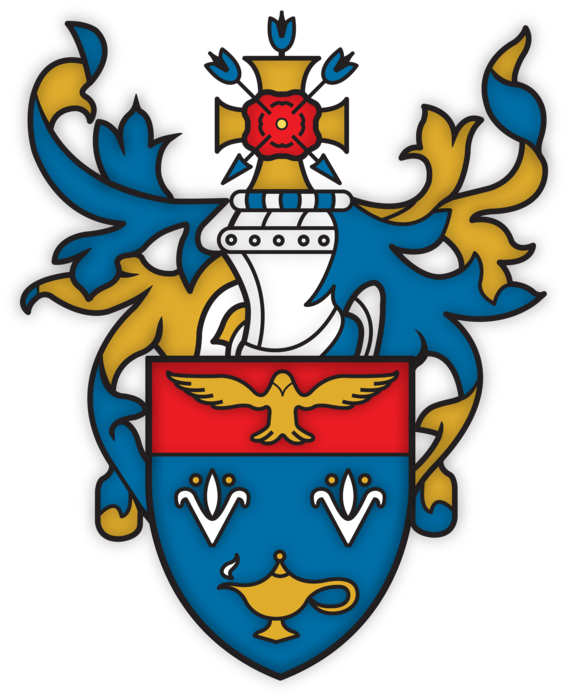Drama
We ensure that the Drama curriculum creatively challenges students to find new methods of communication relevant to our diverse lives. We establish a safe and respectful studio environment, where high expectations develop students’ passion for performance and where we celebrate modern theatrical trends through high quality teaching and learning.
Students of all academic abilities recognise their individual potential through a variety of Performance and Technical design opportunities. We nurture the students' desire for expression and individualism through extracurricular clubs and competitions where their ambition to impact the wider community can be fulfilled.
Analytical thinking is encouraged through perceptive and insightful discussion, enabling students to develop informed alternative opinions. The programme of study builds on learning and experience of performance media, encouraging application of skills in new and stimulating situations and using increasingly digital technology.
Exploring different methods of communication is key. We encourage students to investigate and adapt historical texts and theatrical styles through devising, script work and technical design. The importance of independent learning, ownership and responsibility alongside teamwork is established in Year 7 and revisited throughout, and is fundamental to the success of student outcomes.
All dramatists; students and staff alike, continually develop their knowledge and skills through participation in the developing world of performance.
Curriculum Summary
Key Stage 3
Programme of Study
We offer a diverse and exciting programme of study within the Drama Department. Students develop skills not only in performance but also transferable life skills such as teamwork, confidence building and analytical thinking.
Over two years, students will explore a selection of topics through the medium of Drama.
Topics of study include:
|
SOCIAL |
CULTURAL |
POLITICAL |
HISTORICAL |
|---|---|---|---|
|
|
|
|
Learning/Teaching Approach
Students will develop their skills in:
- Team work and concentration games
- Expression and Communication
- Confidence
- Role Play
- Narration
- Marking the Moment
- Mime
- Still Image
- Cross Cutting
- Thought tracking
- Devising
- Script work
- Technical Design
Assessment
Students will be individually assessed each term in a range of skills including:
- Contribution to classwork
- Live performance work
- Feedback and evaluation of own and others' skills
- Reflective and analytical writing
- Creative design
Key Stage 4
Qualification: GCSE
Awarding Body and Paper: Edexcel 2DR01
Programme of Study
Component 1: DEVISING
Students work in groups to create a performance inspired by a variety of stimuli. Students produce a written portfolio (2,000 words) documenting the exploration process, evaluating their individual contribution and the final performance. The project begins in the summer term of Year 10.
- Students creatively respond to a selection of visual and aural stimuli.
- Students develop a performance in response to the stimuli which is filmed and internally moderated.
- Students analyse and evaluate the aims and intentions of their developed work, their contribution to the process and the final product. The portfolio is completed in school under controlled assessment.
Component 2: PERFORMANCE FROM TEXT
Solo, duo or group work of 2 contrasting extracts of a modern play text. Externally marked by an examiner in the Spring of Year 11.
Component 3: THEATRE MAKERS IN PRACTICE
Written paper of 1 hour 45 minutes, at the end of Year 11.
SECTION A: Pupils explore the performance text 'An Inspector Calls' by J.B Priestley which is also studied in English. Students are given an extract from the play and respond to a series of questions about the performance of that moment.
SECTION B: Pupils attend/observe a piece of live theatre; a compulsory element of the exam paper. We have recently seen The Woman in Black, 1984, Blood Brothers, Matilda, Girls Like That and Things I Know To Be True. Students keep notes on the live performance work which they take in to the examination. Trips are conducted during Year 9 and 10.
Learning/Teaching Approach
There is a balance of written and practical work. Lessons will consist of practical exploration workshops, technical design workshops, skills development and performance work alongside theoretical analysis of plays, playwrights and practitioners and reflective writing. Students will be required to undertake detailed written work and will be expected to work independently and with groups of people (not always their friends).
In all components, students have the opportunity to be assessed as either a designer or performer.
Assessment
Component 1 - 40% of the course; teacher assessed and moderated by the exam board.
Component 2 - 20% of the course; externally examined through a performance for a visiting examiner.
Component 3 – 40% of the course; the written examination.
50% of the marks are awarded for practical and 50% for written/exam.
What it can lead to
The course is not only suitable for a future in the Performing Arts. Students seeking a career in any field which involves the need for confidence in front of others and strong team skills would benefit. Students have successfully progressed to courses in Politics, Law, Medicine, Business and Hospitality.
Additional Points
Students should be aware of the following when considering this course:
- You will be expected to attend theatre trips as part of your course
- You will be expected to complete extended pieces of writing
- You will perform in front of an audience
Tier of Entry
Single Tier
LAMDA
Dance and Drama are popular extra-curricular activities, as well as being part of the formal curriculum. Various dance companies and drama clubs exist to allow students the opportunity to develop their talent and perform for others. LAMDA exams are offered to supplement provision, particularly for those who are not taking Dance or Drama as exam subjects or for those accomplished individuals who wish to further challenge their ability. LAMDA is also a valuable addition to student studies at Sixth Form, where examination grades 6-8 offer UCAS points. Students may choose to study Acting, Musical Theatre or Public Speaking options and exams are taken in the Spring term to ensure all students can participate.
